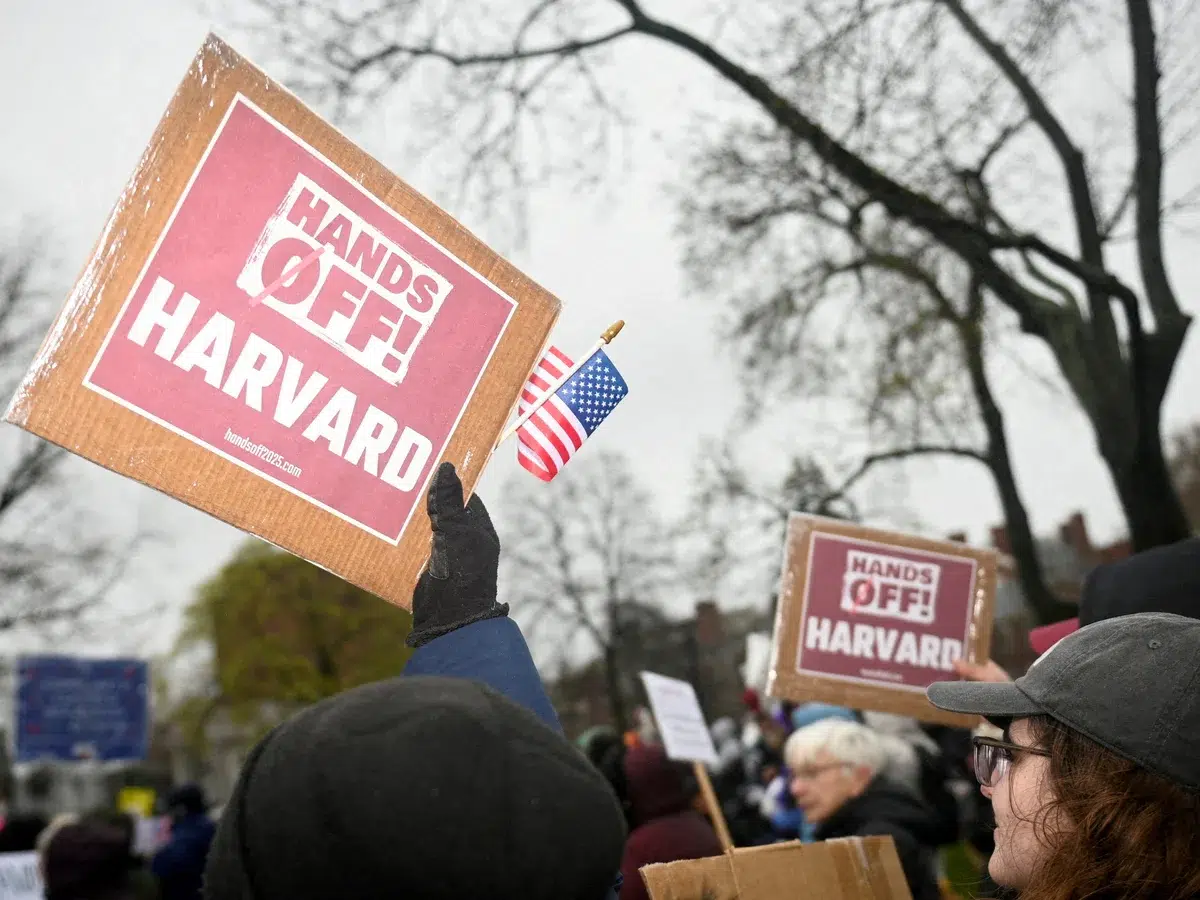Education Policy Brief #212 | Charlie Sweeney | November 5, 2025
If this were a Harvard–Yale football game, it would be a blowout.
Unlike the famed 1968 matchup—when a heavily underdog Harvard team tied Yale and The Harvard Crimson ran the cheeky-but-triumphant headline, “Harvard Beats Yale, 29–29,” this contest has been one-sided from the start.
In relentless fashion, with the nation’s premier universities in its sights, the Trump administration’s assault on academic freedom has been lopsided, swift, punishing, and unwavering—with no signs of letting up.
The scorecard tells the story: Columbia University capitulated and paid more than $220 million in damages; Northwestern’s president resigned under pressure after nearly $790 million in federal funds were frozen; and the University of Virginia’s president stepped down amid an administrative purge of diversity programs.
From Harvard to Stanford, the message was unmistakable—comply or be cut off. The campaign, launched soon after Trump’s return to office in 2025, has transformed federal education funding into a weapon aimed squarely at the nation’s most prestigious campuses.
While showing no signs of slowing, Trump‘s assault on the nation’s premier universities has not gone unnoticed by academia. Irene Mulvey, president of the American Association of University Professors, warned, “What we’re seeing is not policy correction—it’s political retribution dressed as reform.” She added, “The federal government is holding higher education hostage to ideology.”
In an interview with the Chronicle of Higher Education, Lee C. Bollinger, former Columbia president and first amendment scholar, said, “This is a dangerous inversion of academic freedom. Instead of protecting the independence of knowledge, the state is now dictating its boundaries.”
Signs of Trump’s upcoming “War on Higher Ed” were clear in his first administration, but nothing could’ve prepared academics for the assault that was to come after his inauguration this passed January.
Beginning in 2025, the Trump administration escalated it’s long-standing feud by accusing major universities of political bias, intellectual intolerance, and moral decay. Officials claimed that elite schools had become “woke factories,” indoctrinating students instead of educating them.
The administration charged that universities protected antisemitic speech while silencing conservative viewpoints, prioritized diversity and inclusion over merit, and wasted taxpayer dollars on gender, race, and global-studies programs that “undermined American values.”
Federal officials also turned their attention overseas, questioning research partnerships with China and other foreign entities. The White House framed these collaborations as potential national-security risks and argued that universities were “selling out American innovation.” The rhetoric marked a new frontier in federal oversight—an effort to reassert Washington’s authority over what universities teach, fund, and research.
But this was no mere war of words: the administration quickly followed its rhetoric with punitive action.
In early 2025, the Department of Education froze $400 million in funding to Columbia University, citing its “failure to protect Jewish students” during campus protests following the Israel–Hamas conflict.
Harvard was next: the administration withheld roughly $2.2 billion in research and education grants after the university refused to dissolve DEI offices and modify admissions policies.
By spring, the White House introduced the “Compact for Academic Excellence in Higher Education,” offering restored or expanded funding to schools that agreed to a suite of federal conditions—among them tuition caps, limits on foreign students, and an “alignment with American and Western values” across curricula.
Analysts estimated that the administration had frozen or threatened between $3.3 billion and $3.7 billion in grants affecting more than 600 institutions nationwide. These measures represented a radical reimagining of federal education policy: research grants, once distributed on merit and peer review, became bargaining chips in a broader ideological campaign.
Universities have met this assault with a mix of compliance, defiance, and crisis management. Columbia University chose capitulation—paying more than $220 million, adopting the IHRA definition of antisemitism, and rewriting its protest and disciplinary codes to regain access to federal funds.
Harvard University, by contrast, sued the administration, arguing that the funding freeze violated the First Amendment and represented unconstitutional retaliation against perceived ideological opposition.
Elsewhere, leadership turnover signaled turmoil. Northwestern’s Michael Schill resigned amid frozen grants; at the University of Virginia, James E. Ryan was ousted following accusations of “pervasive DEI bias.”
Other institutions, including Brown University and MIT, outright rejected the administration’s compact, asserting that the terms would “compromise academic independence.”
Yet even some defiant campuses quietly restructured diversity offices, modified speech codes, or altered admissions practices in anticipation of further scrutiny—gestures that blended resistance with survival.
As 2026 approaches, the clash between academia and Washington shows no signs of easing. The Trump administration appears intent on using federal dollars to realign higher education with its political agenda, while universities brace for sustained financial and ideological pressure.
Courts may ultimately determine how far an administration can go in conditioning public funding on ideological conformity—but by then, the cultural terrain of American higher education may already be transformed.
If the administration’s campaign succeeds, the result could be a compliance-driven academic landscape—less independent, more politically policed, and divided between institutions that capitulate for funding and those that resist at great cost.
If universities prevail, however, this era may be remembered not as the downfall of academic freedom, but as its hard-won reaffirmation in the face of unprecedented federal coercion.
Engagement Resources
- The Guardian – Columbia University Settlement (July 2025)The Guardian – Columbia University Settlement (July 2025)
- Reuters – Northwestern President Resigns After Funding FreezeReuters – Northwestern President Resigns After Funding Freeze
- Chronicle of Higher Education – Interview with Lee C. BollingerChronicle of Higher Education – Interview with Lee C. Bollinger
- Time – Overview of Trump Administration’s Higher Education PoliciesTime – Overview of Trump Administration’s Higher Education Policies
- American Association of University Professors – Statement by Irene MulveyAmerican Association of University Professors – Statement by Irene Mulvey

